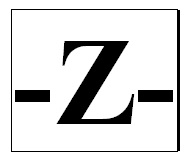
English
Back in high school, I was taught that if I was writing a newspaper report, it was essential to include the Five Ws (who, what, where, when, why) and the H (how).
But learning the Five Ws and the H is also an excellent way to get started learning a language, as Moses McCormick has discovered. He has developed what he calls the FLR method, and the first part of it is learning these question words, questions that you are likely to be asked (such as why are you learning Spanish/French/Danish/Swahili etc), and memorising stock answers to these questions.
Moses is a genius, because the other day a Spanish speaker asked me why I was learning Spanish, in Spanish, and as soon as I faltered in my reply he reverted to English. If only I had a stock reply to this question ready, the conversation could have continued a little longer in Spanish.
You can learn more about Moses’ method here.
Español
Las Cuestiones
Español no es mi primer idioma. Si he cometido un error, ¿me podría corregir?
En colegio, aprendí que si estaba escribiendo un artículo por un periódico, era esencial responder a esas cuestiones – quién, qué, dónde, cuándo, por qué, y cómo.
Pero aprender estas cuestiones es también una manera excelente comenzar aprender un idioma, como Moses McCormick descubría. El ha desarrollado el método FLR. La primera parte es aprender estas palabras y unas cuestiones que personas son probable preguntar. Cuestiones como ¿Por qué estas aprendiendo inglés/francés/danés/suajili? etc. Entonces memoriza unas respuestas por estas cuestiones.
Moses es un genio, porque últimamente un uruguayo me preguntó por qué estoy aprendiendo español, en español. En cuanto dudaba, revertía a inglés.
Puede aprender más sobre el método de Moses aquí (en inglés).










